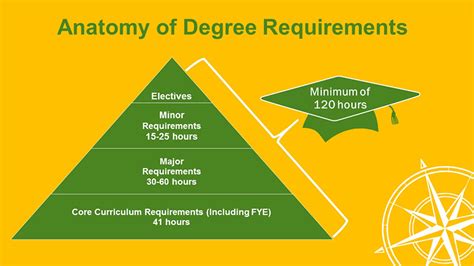Every college student must take general education courses to graduate. Depending on your major, you may also need to take pre-major requirements, also known as prerequisites or corequisites. These courses provide the foundational knowledge you need to succeed in your major courses.

What Are Pre-Major Requirements?
Pre-major requirements are courses that are required for admission to a particular major. They typically include foundational coursework in the major’s subject area, as well as courses that develop essential skills, such as writing, critical thinking, and quantitative reasoning.
Do You Have to Take Pre-Major Requirements?
Whether or not you need to take pre-major requirements depends on your major and the college you attend. Some colleges require students to complete all of their pre-major requirements before declaring a major, while others allow students to declare a major and take pre-major requirements concurrently.
Benefits of Taking Pre-Major Requirements
There are several benefits to taking pre-major requirements before declaring a major, including:
- Ensuring you have the foundational knowledge you need to succeed in your major courses. Pre-major requirements provide you with the essential knowledge and skills you need to understand and apply the concepts in your major courses.
- Helping you make an informed decision about your major. Taking pre-major requirements can help you explore different areas of interest and determine which major is the best fit for you.
- Increasing your chances of getting into your desired major. Many colleges and universities have competitive admission requirements for certain majors. Taking pre-major requirements can help you demonstrate your interest in a particular major and increase your chances of being accepted.
How to Find Pre-Major Requirements
The best way to find out which pre-major requirements you need to take is by checking the academic catalog for your college or university. The catalog will list the requirements for each major, as well as the courses that fulfill those requirements.
FAQs about Pre-Major Requirements
1. How many pre-major requirements do I need to take?
The number of pre-major requirements you need to take depends on your major and the college you attend. Some majors require only a few pre-major requirements, while others require several.
2. What are the most common pre-major requirements?
The most common pre-major requirements include courses in math, science, English, and social studies. However, the specific requirements vary depending on the major.
3. Can I take pre-major requirements at another college or university?
Yes, you can take pre-major requirements at another college or university. However, you should make sure that the courses you take will transfer to the college or university where you plan to complete your degree.
4. What happens if I don’t meet the pre-major requirements for my desired major?
If you don’t meet the pre-major requirements for your desired major, you may need to take additional coursework to meet the requirements. You may also need to consider changing your major.
5. Can I declare a major without taking any pre-major requirements?
At some colleges and universities, you can declare a major without taking any pre-major requirements. However, you may need to take the pre-major requirements before you can take upper-level courses in your major.
6. What are some tips for taking pre-major requirements?
Here are some tips for taking pre-major requirements:
- Start early. Don’t wait until the last minute to start taking pre-major requirements. Starting early will give you plenty of time to complete the requirements and earn good grades.
- Take one or two pre-major requirements each semester. This will help you avoid overloading your schedule and struggling to keep up with your coursework.
- Meet with your advisor regularly. Your advisor can help you choose the right pre-major requirements and make sure you’re on track to graduate.
- Get help when you need it. If you’re struggling with a pre-major requirement, don’t hesitate to get help from your professor, a tutor, or a study group.
